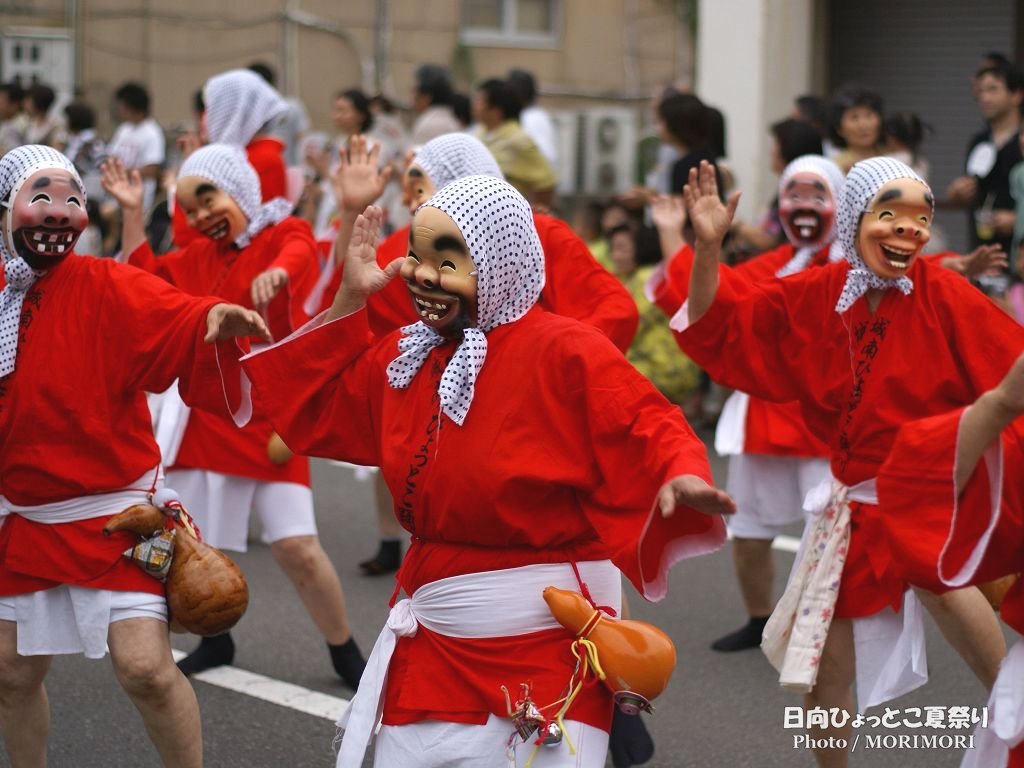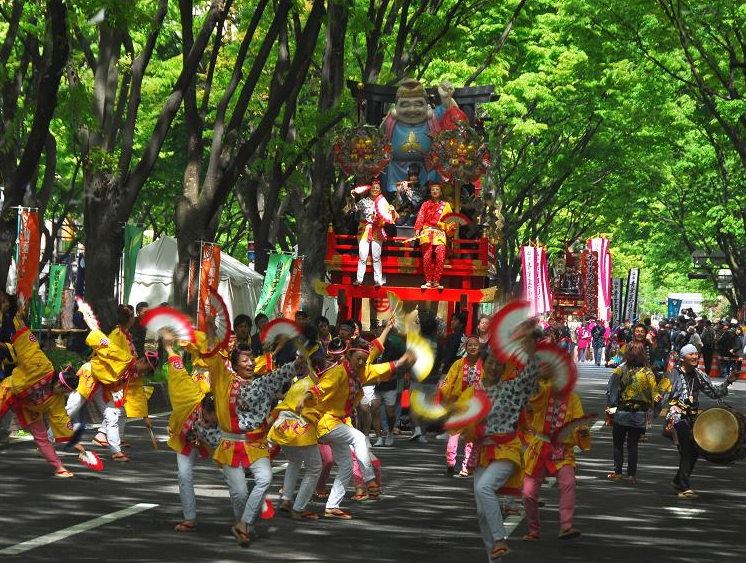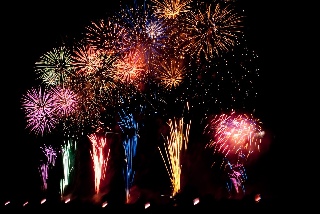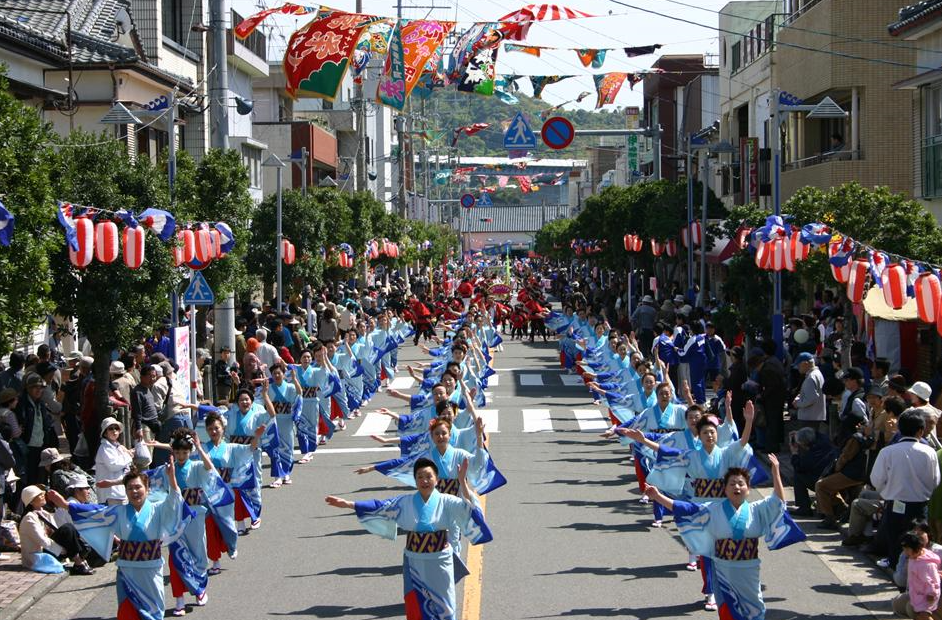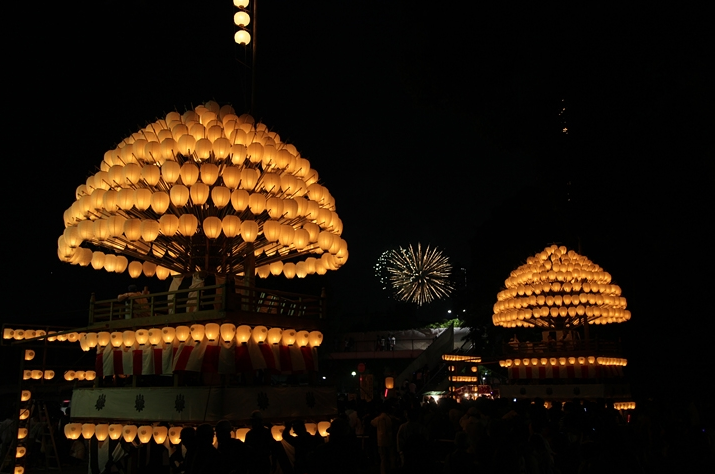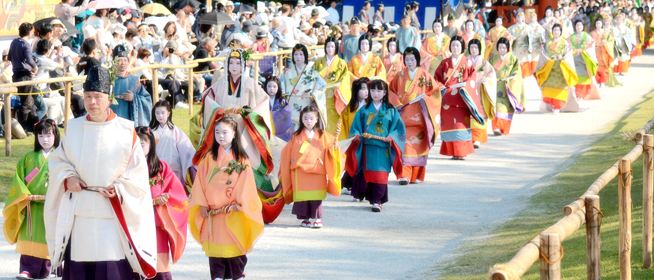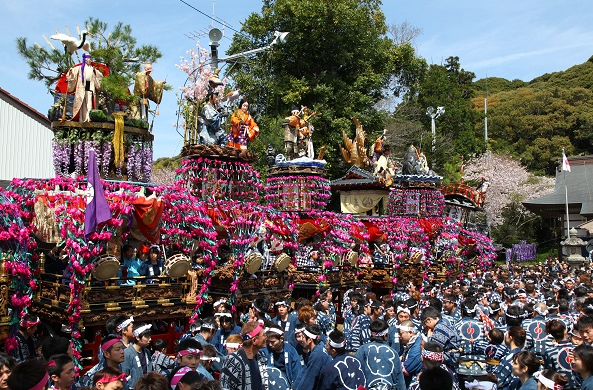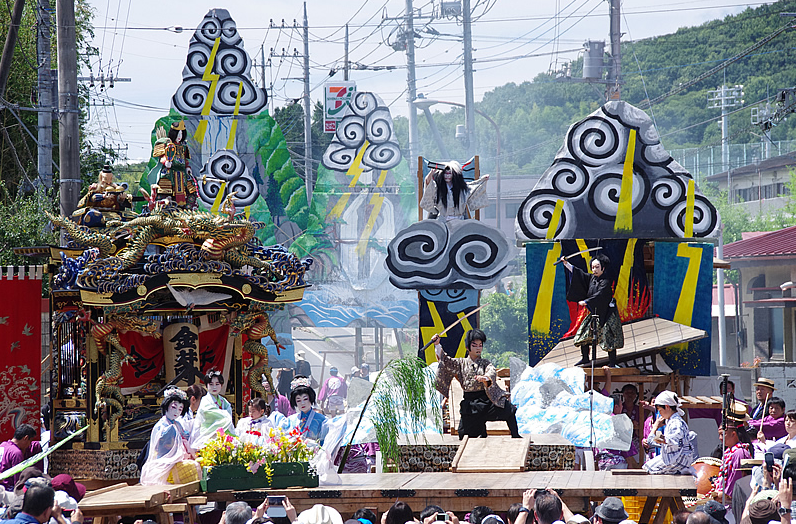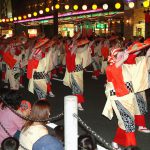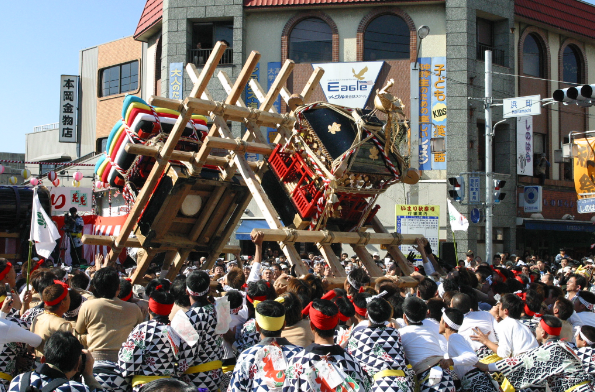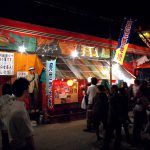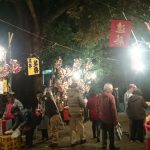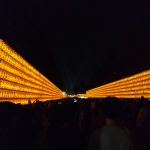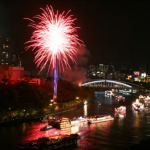What Kind of Place is Hyuga City?
Hyuga City is known as one of the leading industrial areas in Miyazaki Prefecture. It has historically served as a gateway to the prefecture due to its excellent natural harbor, Hososhima Port, facing the Hyuga-nada, a part of the Philippine Sea in the northwest Pacific Ocean. The city enjoys a warm climate with high rainfall and is known for having some of the longest sunshine hours in Japan.
Another notable feature is the “Cruz Sea,” a massive rock formation that has split into a cross shape, located three minutes by car from Umagase. Locally known as “Ju-monji” (the cross), when viewed from the observation deck, it appears alongside nearby rocks to form the kanji character “叶” (fulfill). Legend has it that making a wish there will make it come true, thus earning it the nickname “Cruz Sea of Wishes.”
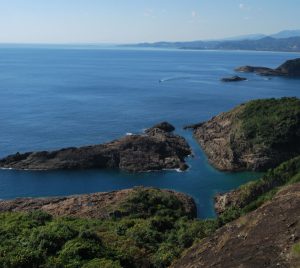
https://www.city.hyuga.miyazaki.jp/display.php?cont=140316174718
Let’s Visit the Hyottoko Summer Festival!
Location: Himuka-no-Mori Plaza in front of Hyuga City Station and the central city area
Date: Preliminary Festival – August 4 (Friday), Main Festival – August 5 (Saturday)
Access: Around Hyuga City Station About a 3-minute drive from the Hyuga IC on the Higashikyushu Expressway
Hyuga Hyottoko Summer Festival Executive Committee Official Website
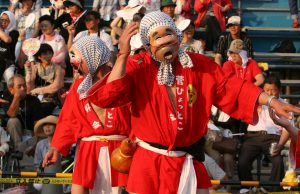
The Hyuga Hyottoko Summer Festival is one of the three major festivals in Hyuga and has become a traditional summer event held annually on the first Saturday of August.
The festival aims to revitalize the local community, preserve traditional culture, and promote tourism. It is organized by the Junior Chamber and the Tachibana Hyottoko Dance Preservation Society. Each year, the festival attracts over 1,500 dancers from all over Japan and more than 60,000 spectators.
The term “Hyottoko” is believed to be derived from “Hi-otoko,” which means “fire-spitting man” from a stove, but there are various theories about its origin, including a legend about a boy with a strange face named Hyotokus.
Hyottoko can refer to several things, such as a fire god or a jester in rural comedies. In Hyuga’s case, it is believed to represent the latter.
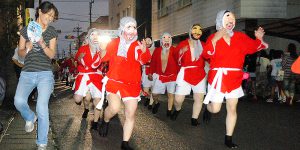
Cover Image: Quoted from Hyottoko Festival Official Website


